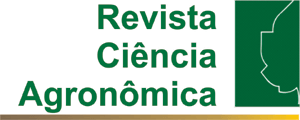This study aimed to evaluate the genetic diversity in progenies of sugar cane by means of multivariate techniques based on eight agroindustrial traits. The work was carried out in the agricultural area of Usina Santa Teresa, Goiana (PE), during the agricultural year 2007/2008. A complete randomized block design with five replications was used. The variables analyzed were: pol tons per hectare (PTH), sugarcane tons per hectare (STH), fiber (FB), corrected pol % (CPP), purity (PTY), content of soluble solids (BX), reducing sugar (RS) and total retrievable sugar (TRS). After analysis of variance and estimation of genetic parameters, the Mahalanobis distance was calculated for quantifying dissimilarity. We used average-linkage method (UPGMA) and the optimization method of Tocher. The average coefficient of heritability was high for the variables PTH and STH indicating the possibility of success in selection for these characters. The methodology allowed identification of progenies with greater genetic divergence providing information for RIDESA sugarcane plant breeding on crosses to be made in the future.
Saccharum spp; Hybridization; Genetic Improvement

 Application of multivariate techniques in the study of genetic diversity in sugarcane
Application of multivariate techniques in the study of genetic diversity in sugarcane







